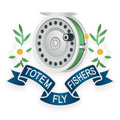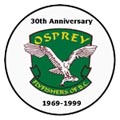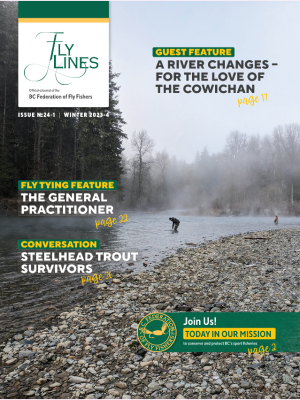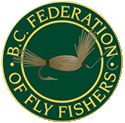







Welcome to the British Columbia Federation of Fly Fishers (BCFFF), where passion for fly fishing meets the stunning landscapes of British Columbia. Over generations, we built our federation to preserve, promote, and enjoy fly fishing in Canada’s westernmost province.
The BCFFF is a hub for individuals who share a common love for the sport. Whether you’re a seasoned angler or a newcomer eager to cast your first line, our federation welcomes all. Through education, conservation, and a shared appreciation for the outdoors, we strive to foster a vibrant fly-fishing community that cherishes and stands ready to defend the pristine waters and diverse ecosystems of British Columbia.

Fly Lines Magazine
Flylines magazine is the quarterly publication of the BCFF. It contains important news about the state of the club, the activities it is involved in and our position on all matters fly fishing. We also have an extensive collection of back issues that you can enjoy.
